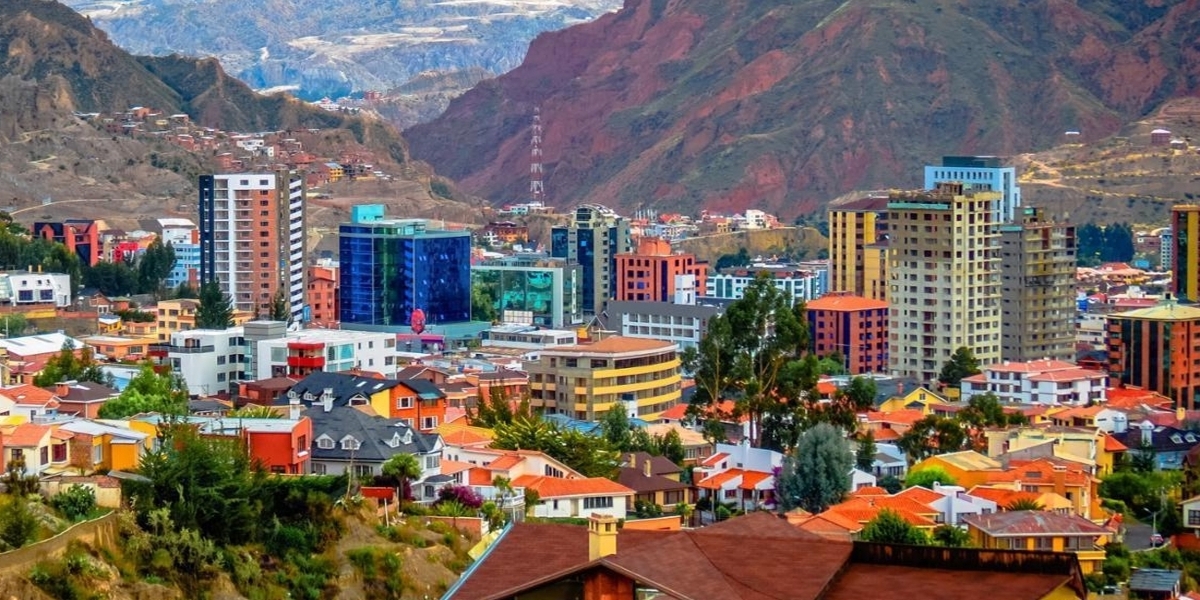
Burundi, a small landlocked country in East Africa, is often called the ‘Heart of Africa’. With a rich cultural heritage, diverse landscapes, and a resilient population, Burundi has a lot to offer to the world. From its breathtaking national parks and beautiful lakes to its vibrant music and dance traditions, Burundi is a hidden gem waiting to be discovered.
In this article, we will explore 39 fascinating facts about Burundi. From its history and geography to its economy and unique traditions, we will delve into the captivating aspects of this lesser-known country. So, if you’re curious to learn more about Burundi, buckle up and get ready for an exciting journey through its intriguing past, breathtaking scenery, and vibrant culture.
Key Takeaways:
- Burundi, the “Land of a Thousand Hills,” is rich in culture, coffee, and warm hospitality. It’s a landlocked nation with a vibrant drumming tradition and a commitment to peaceful coexistence.
- With unique traditions, beautiful lakes, and diverse wildlife, Burundi offers affordable safari experiences and a welcoming atmosphere. Its rich history, traditional dance, and warm hospitality make it a must-visit destination.
The Land of a Thousand Hills
Burundi, officially known as the Republic of Burundi, is a small landlocked country located in East Africa. It is often referred to as the “Land of a Thousand Hills” due to its beautiful and hilly landscape.
Rich Cultural Heritage
Burundi is home to a diverse range of ethnic groups, with Hutu, Tutsi, and Twa being the major ones. Each group has its own unique traditions, customs, and languages, adding to the rich cultural heritage of the country.
Official Languages
The official languages of Burundi are Kirundi and French. Kirundi is widely spoken by the majority of the population, while French holds official status and is used in government, education, and business.
Bujumbura – The Capital City
Bujumbura, located on the northeastern shore of Lake Tanganyika, is the capital and largest city of Burundi. It serves as the country’s main political, economic, and cultural hub.
Tropical Climate
Burundi experiences a tropical climate, with two distinct seasons – a dry season and a rainy season. The average temperature ranges from 20°C to 27°C (68°F to 81°F), making it a favorable destination for travelers throughout the year.
Coffee Production
Coffee is one of the main agricultural products of Burundi and plays a significant role in the country’s economy. Burundian coffee is known for its high quality and is exported to countries worldwide.
Unique Drumming Tradition
Burundi has a vibrant drumming tradition that is deeply rooted in its cultural heritage. Traditional drumming is often performed during ceremonies, celebrations, and cultural events, showcasing the rhythmic skills of the Burundian people.
The Source of the Nile
The southernmost part of Burundi is where the Nile River originates. It is known as the Ruvyironza River and is one of the primary tributaries that contribute to the mighty Nile’s flow.
Landlocked Nation
Burundi is one of the few landlocked nations in Africa, surrounded by Tanzania to the east and south, Rwanda to the north, and the Democratic Republic of the Congo to the west.
Rich Biodiversity
Despite its small size, Burundi is home to a diverse range of plant and animal species. National parks and nature reserves, such as Kibira National Park, provide sanctuary to various wildlife including elephants, chimpanzees, and numerous bird species.
Traditional Intore Dance
The Intore Dance is a traditional ceremonial dance in Burundi, performed by skilled dancers wearing colorful costumes. It represents courage and strength and is often enjoyed by locals and visitors alike.
Peaceful Coexistence
Burundi is working towards achieving peaceful coexistence and harmony among its ethnic communities. Efforts have been made to promote unity and healing, ensuring a future of stability and progress for the nation.
Music and Drum Festivals
Music and cultural festivals, featuring traditional Burundian music and dance, are held throughout the year. These festivals provide a platform to showcase the country’s artistic talent and bring people together in celebration.
Affordable Safari Destination
Burundi offers affordable safari experiences, allowing visitors to explore its natural beauty and encounter wildlife in their natural habitats. From chimpanzee tracking to birdwatching, the country presents unique opportunities to nature enthusiasts.
The Burundian Flag
The national flag of Burundi consists of three horizontal stripes – the top and bottom stripes are white, symbolizing peace, and the middle stripe is red, representing the courage and bloodshed of the nation’s struggle for independence.
Cultural Influences from Nearby Countries
Burundi’s location has exposed it to cultural influences from neighboring countries like Rwanda, Tanzania, and the Democratic Republic of the Congo. This blend of cultures adds to the country’s vibrant diversity.
Traditional Medicine
Traditional medicine plays an essential role in Burundi, with many people relying on natural remedies and healing practices passed down through generations. Plant-based treatments are often used for various ailments and wellness purposes.
Beautiful Waterfalls
Burundi is blessed with several stunning waterfalls, including the Chutes de la Kagera and the Karera Falls. These natural wonders attract tourists who want to experience the awe-inspiring beauty of cascading water.
Franc Currency
The currency of Burundi is the Burundian franc (BIF). It is the official means of exchange and is used for daily transactions within the country.
Traditional Handicrafts
Burundian artisans create beautiful handicrafts, including pottery, basketry, wood carvings, and textiles. These crafts reflect the country’s traditions and cultural heritage and make for unique souvenirs.
Historic Sites
Burundi is home to several historical sites, such as the Royal Drum Sanctuary and the Gishora Drum Sanctuary, which provide a glimpse into the country’s rich history and cultural significance of drumming.
Rundi – A Kirundi Word
The term “Rundi” is used to refer to the national language of Burundi, Kirundi. It is also used to describe the people of Burundi and their customs.
Traditional Cuisine
Burundian cuisine is characterized by its simplicity and use of local ingredients. Staple foods include beans, maize, sweet potatoes, plantains, and cassava. Ishabwe, a creamy peanut sauce, is a popular accompaniment to meals.
A Land of Lakes
Burundi is known for its picturesque lakes, including Lake Tanganyika, Lake Rwihinda, and Lake Cohoha. These bodies of water offer opportunities for water sports, fishing, and relaxation.
Coffee Culture
Coffee holds a significant place in Burundian culture and social customs. It is often served during social gatherings as a sign of hospitality and is an integral part of daily life.
National Symbols
The national emblem of Burundi features a shield and three spears, representing the country’s defense, and a lion, symbolizing courage. The national motto, “Unity, Work, Progress,” is inscribed below.
Independence Day
Burundi celebrates its Independence Day on July 1st every year. It is a national holiday commemorating the country’s liberation from Belgian colonial rule in
Unique Hairstyles
Burundian women are known for their unique hairstyles, often adorned with elaborate braids, beads, and intricate patterns. These hairstyles are an expression of cultural identity and individual creativity.
Conservation Efforts
Burundi is committed to preserving its natural beauty and biodiversity. Efforts are being made to protect endangered species and ecosystems through the establishment of national parks and conservation initiatives.
Traditional Kingship
Burundi has a long history of traditional kingship. The institution of the king, known as the Mwami, held significant influence in Burundian society before the country adopted a republican form of government.
Soccer – The National Sport
Soccer, also known as football, is the most popular sport in Burundi. The national team is known as “Les Hirondelles” (The Swallows) and has achieved success in regional and international competitions.
National Parks
Burundi boasts several national parks, including Rusizi National Park and Ruvubu National Park, which offer opportunities for wildlife viewing, hiking, and experiencing the country’s natural wonders.
Traditional Pottery
Burundian pottery is renowned for its intricate designs and skillful craftsmanship. The clay pots and vessels are often used for cooking, storage, and serving traditional meals.
Legends and Mythology
Burundi has a rich oral tradition of legends and mythology that has been passed down through generations. These stories often convey moral lessons and reflect the beliefs and values of the Burundian people.
Traditional Medicine Men
Traditional medicine men, known as “Abatimbo,” are respected figures in Burundi. They possess knowledge of medicinal plants and healing rituals and play a vital role in the healthcare system of rural communities.
Education Challenges
Burundi faces challenges in providing quality education for its population. Efforts are being made to improve access to education, enhance the quality of teaching, and promote literacy rates across the country.
The Burundian Drum
The Burundian drum, known as the “Karyenda,” is a symbol of Burundi’s cultural identity and tradition. It is considered sacred and is played on significant occasions to celebrate unity and honor the ancestors.
Traditional Dance and Music
Burundian traditional dance and music are vibrant and energetic forms of artistic expression. The combination of drumming, singing, and dancing creates a captivating performance that showcases the country’s cultural heritage.
Warm Hospitality
Burundians are known for their warm hospitality and friendly nature. Visitors to the country often experience a warm welcome and genuine hospitality that reflects the values and traditions of the Burundian people.
Conclusion
In conclusion, these 39 facts about Burundi paint a vivid picture of a small but fascinating country in East Africa. From its stunning landscapes and diverse wildlife to its rich cultural heritage and resilient population, Burundi has much to offer. Despite its challenges, the country continues to make progress towards development and stability.Burundi’s geographical location in the heart of Africa makes it a unique destination, offering opportunities for adventure and exploration. Its national parks, lakes, and mountains provide a stunning backdrop for outdoor activities like hiking, wildlife safaris, and birdwatching.The people of Burundi are known for their warmth, hospitality, and vibrant cultural traditions. They take immense pride in their history, music, dance, and colorful clothing. Visitors to Burundi can expect a unique cultural experience filled with traditional ceremonies, delicious cuisine, and lively celebrations.As Burundi continues to open its doors to tourism, it offers an authentic and unforgettable experience for those seeking to explore the lesser-known corners of Africa. Whether you are interested in its history, natural wonders, or cultural heritage, Burundi has something for everyone.
FAQs
Q: What is the official language of Burundi?
A: The official languages of Burundi are Kirundi and French.
Q: Is Burundi a safe country to visit?
A: Traveling to any country has its risks, but with proper precautions and research, Burundi can be a safe destination. It is advisable to stay informed about the current political and security situation before planning a visit.
Q: What is the best time to visit Burundi?
A: The best time to visit Burundi is during the dry season, which runs from June to September. The weather is mild, and wildlife viewing is at its prime during this time.
Q: Are there any visa requirements for visiting Burundi?
A: Yes, most visitors to Burundi will need a visa to enter the country. It is best to check with the nearest Burundian embassy or consulate for specific visa requirements.
Q: What are some must-visit attractions in Burundi?
A: Some popular attractions in Burundi include Lake Tanganyika, Kibira National Park, Rusizi National Park, and the Royal Drummers of Burundi Cultural Center.
Q: Can I hike the mountains in Burundi?
A: Yes, Burundi is home to the scenic mountain range known as the “Mudugudu.” Hiking enthusiasts can explore the mountains and enjoy breathtaking views of the surrounding landscapes.
Q: What is Burundi known for?
A: Burundi is known for its stunning natural beauty, rich cultural traditions, traditional drumming, and hospitality of its people. It is also known for its coffee, which is highly regarded worldwide.
Burundi's rich history and stunning landscapes captivate visitors from around the world. Capital city Bujumbura offers a glimpse into vibrant urban life, while the Nile River's origins lie within Burundian borders. Explore more fascinating facts about Bujumbura's culture and the mighty Nile's journey through Africa.
Was this page helpful?
Our commitment to delivering trustworthy and engaging content is at the heart of what we do. Each fact on our site is contributed by real users like you, bringing a wealth of diverse insights and information. To ensure the highest standards of accuracy and reliability, our dedicated editors meticulously review each submission. This process guarantees that the facts we share are not only fascinating but also credible. Trust in our commitment to quality and authenticity as you explore and learn with us.


